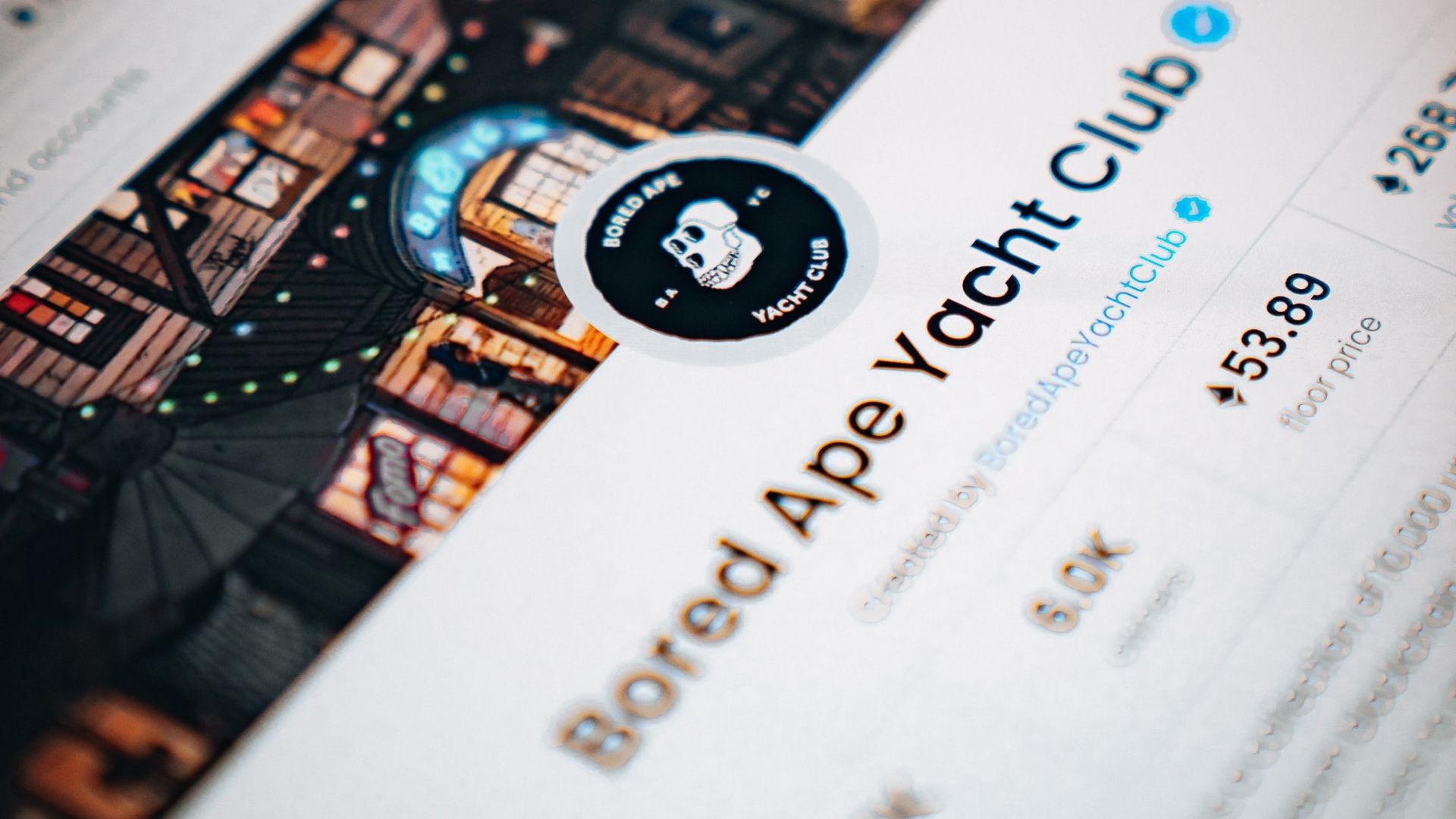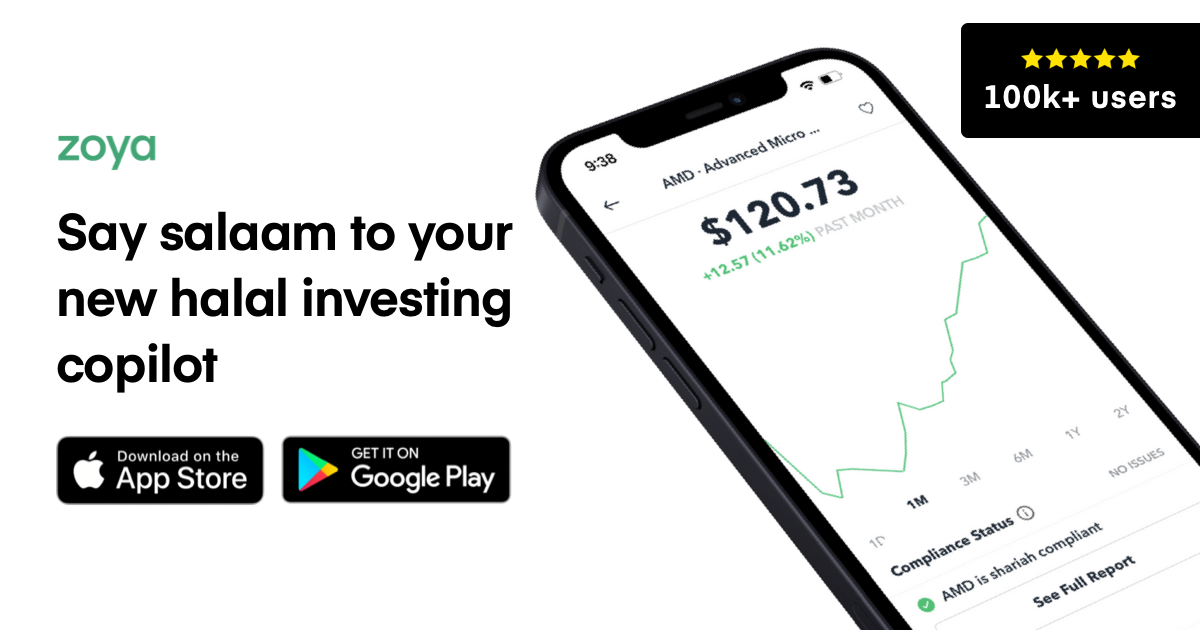هل هي حلال استثمارك الحلال القادم؟

لقد أصبح الاستثمار هو الموضوع المفضل، حيث يهيمن على المحادثات الجماعية والخيارات المالية في جميع أنحاء العالم. وعلى عكس الركود الذي شهده عام 2008، فإننا نشهد ارتفاعًا في عدد المستثمرين الأفراد الذين يتحكمون في أداء السوق. فقد قام أكثر من 15 مليون أمريكي بتنزيل تطبيق تداول خلال الجائحة - مع قيام 6 ملايين أمريكي بتنزيل تطبيق تداول في يناير 2021 وحده(ديلويت، 2021).
لأول مرة، نشهد الآن إضفاء الطابع الديمقراطي على التمويل من خلال تقدم التكنولوجيا. فالناس الحقيقيون على وشك اتخاذ خيارات مالية حقيقية، كل ذلك من خلال نقرة على الشاشة.
ولكن بما أننا بدأنا للتو في التعامل مع الأسهم والحصص، فهناك مجموعة كاملة من خيارات الاستثمار الجديدة التي تنتظرنا.
من المؤكد أن الاستثمارات البديلة مثل العملات الرقمية المشفرة والرموز غير القابلة للاستبدال (NFTs) قد صعدت بالتأكيد إلى المراتب كفرص استثمارية مجدية خلال الجائحة - ولكن إلى أي مدى يمكننا القول إننا نفهم حقًا ما هي هذه الاستثمارات وما إذا كانت استثمارًا حلالًا قابلًا للتطبيق؟
حيث بدأ كل شيء...
أصبحت NFTs عملاً جادًا خلال العام الماضي. لدرجة أنه اعتبارًا من 15 يناير 2022، قُدرت القيمة الإجمالية لمبيعات NFTs على البلوكتشين بـ 150 مليون دولار أمريكي(Statista، 2022).
يبدو الأمر جنونيًا جدًا بالنسبة لاستثمار جديد ومعقد في كثير من الأحيان.
لا شيء يصرخ اقتصاديات الضجيج أكثر من ظهور NFTs (دعونا ننسى الحقبة العليا - من فضلك.) ولكن ما هو NFT؟
من أجل شرح ماهية NFT، نحتاج أن نبدأ بشرح ما هو NFT ليس...
يتمثل الفرق الأساسي بين الرمز المميز القابل للاستبدال والرمز غير القابل للاستبدال في أن الرمز المميز القابل للاستبدال يمكن استبداله بسهولة بأصل من نفس النوع.
على سبيل المثال، يستطيع أحمد أن يذهب إلى البنك ويستبدل سبيكة ذهب وزنها 100 جرام بسبيكة ذهب أخرى وزنها 100 جرام. وذلك لأنهما متماثلان في الوزن ولهما نفس القيمة.
ومع ذلك، فإن الرمز غير القابل للاستبدال (NFT) يوصف بشكل أكثر شيوعًا بأنه رمز رقمي يمثل أصلًا رقميًا. ولكي نكون أكثر تحديدًا، فإن NFT هو سجل الرمز المميز المذكور على البلوكشين. لذا فإن أي معلومات تتعلق بالأصل - هذه هي NFT.
وتتكون المعلومات نفسها من من أنشأها ومن اشتراها ومن امتلكها طوال تاريخها.
نظرًا لأنها تعيش على سلسلة الكتل، فإن جميع التغييرات تكون عامة وتعمل أجهزة الكمبيوتر على التحقق من صحتها، مما يجعل من الصعب اختراقها واستثمارًا أكثر أمانًا. لا يمكن تغييرها أو استبدالها وهي فريدة من نوعها تمامًا، مما يجعلها قادرة على الاحتفاظ بقيمتها (نظريًا).
يستطيع منشئو NFT توفير قيمة لأنها تمثل ندرة في المحتوى الرقمي. على سبيل المثال، إذا كنت ستشتري واحدًا من ستة أعمال فنية من أعمال Bored Ape Yacht Club NFT، فستكون واحدًا من ستة أشخاص كحد أقصى في العالم لامتلاك قطعة فنية فريدة لا يمكن تكرارها.
تسمح بلوكتشين الإيثيريوم للفنانين ومنشئي المحتوى - أي شخص إلى حد كبير - بإرفاق قيمة لإبداعاتهم من خلال NFTs. في جوهرها، تحفز NFTs اقتصادًا مفتوحًا حيث تكون رقمنة الأصول والبيانات هي القاعدة.
في حين أن كلاً من NFTs والعملات المشفرة تعمل على تقنية البلوك تشين، فإن NFTs غير قابلة للتبديل في الطريقة التي تكون فيها عملة بيتكوين واحدة هي نفسها عملة بيتكوين أخرى.
بدلاً من ذلك، يمثل كل NFT ملفًا رقميًا فريدًا يعيش على سلسلة الكتل. قبل البلوك تشين، كان من السهل نسخ الأصول الرقمية وتوزيعها.
تتمثل إحدى المزايا الرئيسية لـ NFT المدعومة بتقنية البلوكتشين في أنها تسهل تحديد المالك الشرعي. يمتد هذا إلى حماية حقوق النشر وحقوق الملكية - وهي ميزة كبيرة إذا كنت تستثمر في مجال الأعمال الفنية والمقتنيات.
ومع ذلك، فمن المستحسن أن يتم تخزين NFTs على محفظة رقمية للأجهزة الباردة. من خلال القيام بذلك، فإنه يحميها من المتسللين والمتطفلين الذين لا يستطيعون الوصول إليها. بالإضافة إلى ذلك، تأتي كل محفظة باردة مزودة بمعرف فريد وكلمة مرور خاصة بها لمزيد من الحماية. هذه بالطبع عملية شراء إضافية، وبالتالي يجب مراعاة مجموعة من التكاليف عند القيام بمثل هذا الاستثمار.
حسنًا، ما هي وجهة النظر الإسلامية - هل ال NFTs حلال أم حرام؟
بطبيعة الحال، كمجال متطور، سيصبح الفقه المحيط بـ NFTs أكثر دقة مع مرور الوقت. ومع ذلك، هناك العديد من وجهات النظر الفقهية عندما يتعلق الأمر بما إذا كانت NFT متوافقة مع الشريعة الإسلامية أم لا. فيما يلي بعض نقاط الاعتبار الرئيسية:
- من الناحية النظرية، تعتمد إباحة غير الحلال من الناحية النظرية على ما إذا كانت المكونات متوافقة مع الشريعة الإسلامية. في الأساس، ما الذي يمكن اعتباره حلالاً وغير حلال؟
- هل غير القابل للاستبدال متوافق مع الشريعة الإسلامية في حد ذاته؟
ووفقًا للمفتي إسماعيل ديساي، فإن ما لا يجوز أكله يعتبر متوافقًا مع الشريعة الإسلامية (بشرط أن يكون غير القابل للاستبدال حلالاً). وذلك لأنه بموجب الشريعة الإسلامية "كل شيء مباح، طالما لم يقم دليل على أنه حرام". وبناءً على ذلك، فإن التحويل غير القابل للاستبدال (NFT) جائز بحكم أنه يمثل استخدام نظام سلسلة الكتل.
ومع ذلك، إذا كانت ن.ف.ت. غير متوافقة مع الشريعة الإسلامية (أي: حرام) أو كانت هناك مشاكل خارجية محتملة يمكن أن تؤدي إلى عدم التوافق الشرعي، فإن ن.ف.ت. غير متوافقة مع القيم الشرعية. يجب أن تمثل أي نFT شكلاً مقبولاً شرعاً.
يشارك الشيخ جو برادفورد، أحد المستشارين الشرعيين لزويا، وجهة نظر مماثلة كما هو موضح في فيديو اسأل زويا أدناه.
وعلاوة على ذلك، يتوسع المفتي فراز آدم في هذا الأمر بنقاط أخرى يجب مراعاتها عند استكشاف إمكانات الاستثمار في NFT. فيما يلي ثلاث نقاط رئيسية للامتثال الإسلامي يجب مراعاتها:
- إن وجود المالية، وهو الشيء الذي يعتبر ذا قيمة بالنسبة للشخص العادي، والذي يمكن استرجاعه عند الحاجة، هو عنصر مهم في أي استثمار رئيسي. يجب أن يحدد المجتمع بشكل جماعي أن يكون الأصل ذا قيمة إذا كان سيخضع للامتثال للشريعة.
- وبالمثل، يجب أن يكون التقوّم أو "الشيء الذي له فائدة ومنفعة مشروعة" قائمًا أيضًا. وفي سياق التمويل غير النقدي، حيث يوجد إجماع مجتمعي، يجب أن تكون هذه الاستثمارات ذات قيمة موثوق بها، وفي الوقت نفسه يجب أن تكون ذات قيمة موثوق بها، وأن تكون أيضًا ذات صلة بمعايير الحلال.
- أخيرًا، يجب أن تكون NFT إيجابية بطبيعتها. ويشمل ذلك عدم الإسراف والتبذير وكذلك أن يكون مفيدًا من الناحية الموضوعية. بالطبع، يجب النظر في ذلك على أساس كل حالة على حدة.
ما هي الصناعات التي يمكنني الاستثمار فيها؟
وقد تم إنتاج بعض من أكثر NFTs شعبية عبر عدد كبير من الصناعات، من الفن إلى البيانات. نحن نشهد موجة من الفنانين الناشئين الذين يقومون "برقمنة" أعمالهم الفنية على البلوكتشين ويجنون أموالاً طائلة من هذا المشروع.
وبالمثل، فإن البيانات تعطي الكثير من الفائدة مقابل المال، حيث إننا الآن نتبنى الآن Web3، أصبحت نطاقات خدمة تسمية الإيثيريوم (ENS) شائعة بشكل متزايد لتوحيد عملاتك المشفرة تحت الاسم الذي تختاره. تُعتبر هذه النطاقات حلالاً لأن البيانات الأساسية متوافقة مع الشريعة الإسلامية.
وبشكل عام، كما ذكرنا سابقًا، طالما أن استثمار NFT لا يتعارض مع الشريعة الإسلامية، فإنه يعتبر حلالاً.
المستقبل يبدو مشرقاً، والمستقبل يبدو تقنياً
تُعد صناديق الاستثمار غير المالية اتجاهًا ناشئًا بين المحافظ الاستثمارية الإسلامية. تستمر صناعة التمويل الإسلامي في التطور، مما يعزز من النظرة المستقبلية المحسنة للاستثمارات المحتملة الصاعدة.
قد تكون NFTs هي أحدث بطاقات البوكيمون اللامعة التي تستحوذ على هوسنا، ولكن من المهم أن تفكر في القيمة الملموسة التي تضيفها غير الاستبدالات إلى حياتك كمستثمر، في هذه الحياة وفي الحياة الأخرى.
من السهل جدًا أن تنجرف في اقتصاديات الضجيج، ولكن اسأل نفسك: هل هذا الاستثمار هادف أم غير هادف؟

Zoya: الأسهم الحلال وصناديق الاستثمار المتداولة وصناديق الاستثمار المتداولة
تجعل Zoya الاستثمار الحلال سهلاً من خلال مساعدتك في بناء محفظة استثمارية متوافقة مع الشريعة الإسلامية ومراقبتها بثقة ووضوح.
